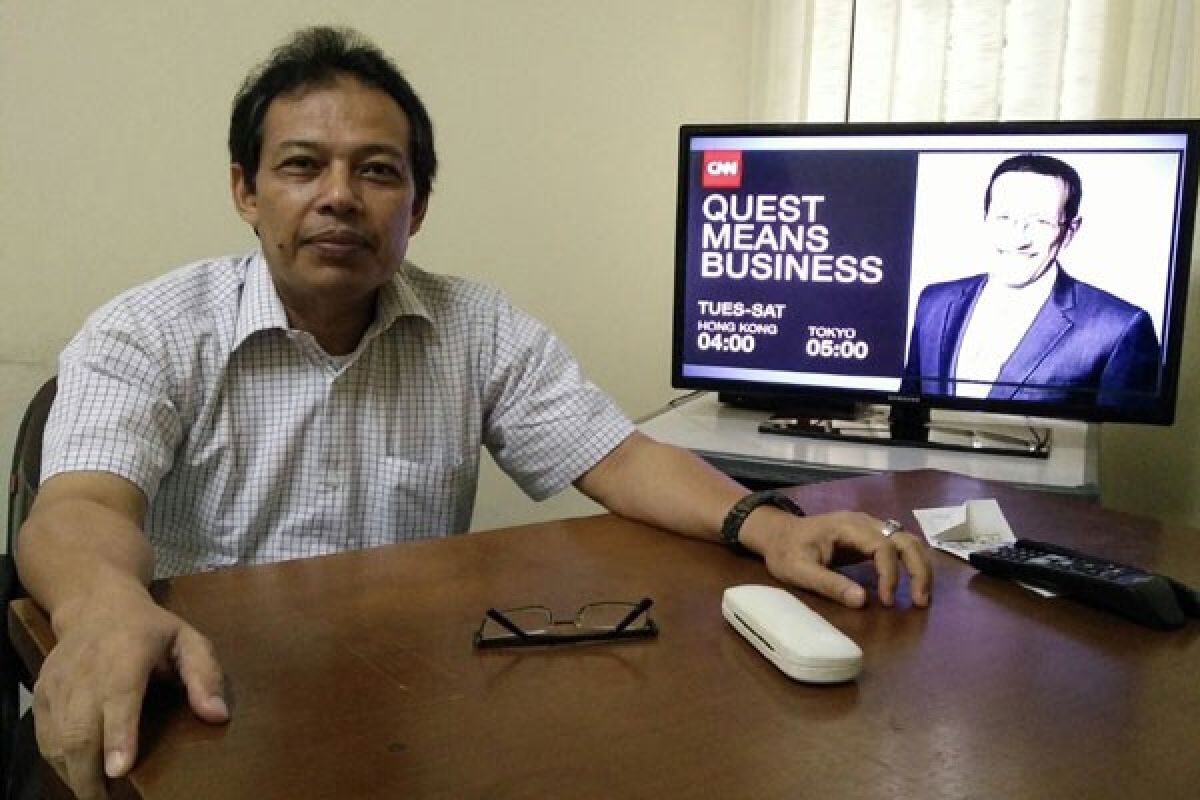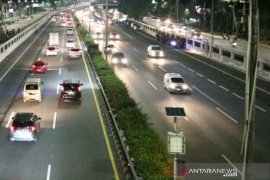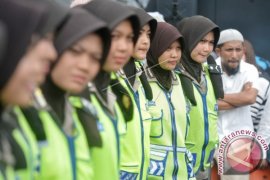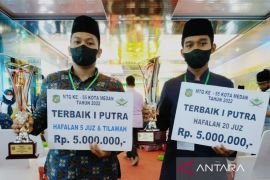President Joko "Jokowi" Widodo's role in pushing for both judicial and non-judicial processes to resolve historic human rights abuse, particularly the 1965 tragedy, is key to reach national reconciliation as well as to provide justice for victims and survivors. Even though the Coordinating Political, Legal and Security Affairs Minister Wiranto had planned to push for a non-judicial settlement, the committee to accommodate the process should be established under the President.
The government, perpetrators, survivors and NGOs should be involved. The commission should have a working timeline and work calmly without excessive publication. After the non-judicial process has been concluded, then the government can announce the result to public.
Some human rights activist have suggested Indonesia must follow a successful reconciliation in Chile, where former Chilean President Patricio Aylwin set up a similar committee, which resulted in a recommendation that created a win-win solution for everyone, before he publicly apologized for the killings and torture committed under the Pinochet dictatorship.
Whilst, rights activist Usman Hamid said while delivering a state apology was important, Jokowi should still push for a judicial process and provide legal justice for victims and survivors in accordance with the country's Constitution through establishing a team of ad hoc prosecutors under the Attorney General's Office. The ad hoc team should involve the House of Representatives, Constitutional Court and the National Commission of Human Rights (Komnas HAM). "Pushing for judicial process] is not impossible since President Jokowi has more chances than obstacles to make things right," Usman said further explain.
Non-Judicial Process
Since IPT'65 decisions was published, some survivors with NGO and an interest group has been making political and law manuevre to sue the government to resolve historic human rights abuse, and their manuevre have been intensively done after the successful of Chile's government to end their past human rights abuse.
Basically, 1965 tragedy survivors had not been satisfied if past human rights abuse which they as the victims has been resolving through non-judicial process, because they want if its be resolved through judicial process. So clearly they had political reveange on those cases.
1965 tragedy survivors have been vowed that past human rights abuse must be resolved through judicial process more better than non-judicial process, and they had been asserted to report its to the United Nations Security Board in 2017 if Indonesia government didn't have a good intention to resolve it.
Previously, the IPT 1965 had been emboldened in their efforts after meeting with members of the Presidential Advisory Board (Wantimpres), who told them bluntly that the President would focus his attention on the economy and infrastructure.
As a last resort, Nursyahbani said the IPT 1965 would take the case to the UN Security Council (UNSC). "It is part of the plan. But it may take a long while to do this because in order to eventually see them, the UNSC must deem that the purge was an extraordinary crime. We need to gather political support from other countries," Nursyahbani said. She said a country need not be a member of the UNSC to call for an extraordinary court. However, membership of the UNSC, something which Indonesia is currently seeking, would help her cause.
On April 17 next year, Nursyahbani said, the report on the implementation of human rights in Indonesia would be reviewed in the Universal Periodic Review at the Human Rights Council in Geneva. "This also will be an opportunity for us to submit the IPT 1965 verdict as a non-governmental report from Indonesia," Nursyahbani said.
An interest group who take a huge attention on these case has been making propaganda through Saskia E Weiringga, Chairperson of the Foundation IPT 1965 said that to this day victims and survivors of the mass killings and other crimes against humanity committed by the military and the militias associated with them after Oct. 1, 1965, still suffer from stigma.
They are seen as being responsible for plotting a coup, and the women in particular are associated with alleged sexual orgies, in which the bodies of generals were mutilated. In actual fact the generals were murdered by soldiers under the command of two colonels, in a plot to abduct them and bring them before then president Sukarno.
Indonesian Communist Party (PKI) leader DN Aidit and a very small group of his closest associates were involved in this plot. However, subsequently the whole party, which was operating legally and counted some 3 million members, as well as thousands of other unarmed and innocent supporters of president Sukarno, were blamed for this "coup" by Gen. Soeharto. To dehumanize them, as a precursor to the mass killings, mass detentions, torture, enslavement and sexual violence that followed, a campaign of hate propaganda was engineered, spread by the media that was totally controlled by the military.
This propaganda campaign has been exceedingly successful, lasting longer than the Nazi propaganda against the Jews. The propaganda version of the events of Sept. 30 to Oct. 1, 1965 had a significant dehumanizing impact, helping to justify the extralegal persecution, detention and killing of alleged suspects and particularly to legitimize the use of sexual violence against women.
This propaganda also contributed to the denial of survivors' civil rights and the absence of any attempt to remedy the injustices against them.
Saskia E Wieringa, a sociologist and feminist at the University of Amsterdam, said other elements of this campaign held that the PKI was against religion, against the Pancasila state ideology and must be held responsible for the killings of religious leaders since the 1948 "Madiun affair" in East Java.
The panel of judges of the International People's Tribunal on the 1965 crimes against humanity in Indonesia (IPT 1965), held last November in The Hague, considered two elements of this campaign.
The prosecution focused on two central charges of the decades-long campaign. First, that the PKI was the "mastermind" behind the failed coup of Sept. 30 to Oct. 1 1965. And second, that during the coup the young women present at Lubang Buaya (where the officers who were not yet dead were murdered and their bodies thrown into a disused well in East Jakarta) were encouraged by the PKI to engage in immoral behavior, seeking to seduce the generals in "a lurid, naked dance", and then "castrating the generals" and "killing them after gouging out their eyes".
However, the government intention to resolve the historic human rights abuse case will misguide by PKI symphatizers and communist supporters as a political chance to purge communist image in Indonesia.
I think a communist is still a latent and actual vulnerability for Indonesia in the era of democratization, so our government must alert on these threats. Nowadays, a communist supporters have "a second wind".
*) The author is past human rights abuse observer. Residing in Batam, Kepri.
Non-Judicial Process is The Best Way To Resolve Historic Human Rights Abuse
Selasa, 18 Oktober 2016 15:30 WIB

Wildan Nasution. (ANTARA FOTO/Dokumentasi-Pribadi/Dok).
The government intention to resolve the historic human rights abuse case will misguide by PKI symphatizers and communist supporters as a political chance to purge communist image in Indonesia.





